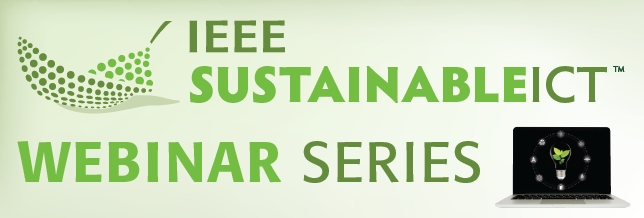
25 January 2022 // Webinar on "Energy Conservation and Emission Reduction in the 5G/6G Era"
Description: Sustainability is gaining importance worldwide, so also in the Information and Communication Technology (ICT) sector. Several studies have been published showing the positive sustainability impacts ICT solutions may have, and during the Covid-19 pandemic it has been demonstrated how ICT solutions such as remote working, video meetings, etc, have been instrumental for keeping businesses and societies going, thereby proving these solutions work for real. But we must not forget the sustainability of ICT itself, and in particular the radio access networks providing nationwide access to the ICT services. Energy efficiency have been in focus there for a long time, the latest generation 5G that currently is being rolled out is the most energy efficient ever, and the development continues towards 5.5G and 6G. This presentation will review the progress in recent years, discuss current challenges, and outline the research directions we see on the road towards energy efficient and low carbon networks of the future.
View the Webinar Recording and Presentation
Speaker:
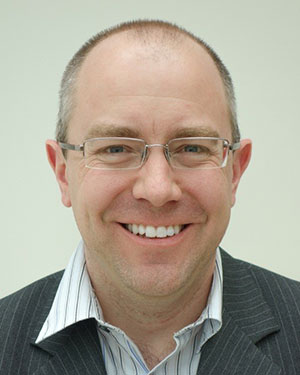
Magnus Olsson
Magnus Olsson has been in the wireless industry for more than 20 years. Since 2017, he holds a position as Principal Energy Efficiency expert at Huawei Technologies, based at the Stockholm Research Center in Sweden, where his current responsibilities include RAN Energy Efficiency research and standardization in ETSI and ITU. Before that, he was with Ericsson Research, Stockholm, Sweden, which he joined in 2000. Over the years he has worked on several radio access technologies and areas such as advanced antenna systems, interference rejection techniques, and energy efficiency of radio access networks (RAN). He has authored and co-authored over 30 international journal and conference papers as well as book chapters, and is a recipient of the IEEE Communications Society Fred W. Ellersick Prize (2014). He has held leading positions in both internal and various European collaborative research projects. For example, he was the Technical Manager of the successful €14.8m EU FP7 EARTH project on RAN energy efficiency which received the ceFIMS Future Internet Award (2012). Since 2015, he is on the steering committee of the IEEE Green ICT initiative, a pan IEEE Societies initiative responsible for Green ICT activities across IEEE, and since 2019 member of the Energy Efficiency working group of the IEEE International Network Generations Roadmap (INGR).
30 November 2021 // Webinar on "Communications in the 2030s - Objectives of Sustainability on the Path to 6G"
Description: Sustainable development goals and objectives of societal, economic and environmental sustainability have become a priority worldwide. The ICT sector will need to contribute in a special way to help achieve objectives of sustainability because information and communication network technologies of the future will have positive enabling impact across industry sectors.
In this webinar the sustainability approach and focus of Nokia, the trusted partner for critical networks with a commitment to innovation and technology leadership will be presented including aspects of energy efficiency, circular economy and sustainable supply chains. 5G network build-out and 5G evolution are successfully under way and have shown positive impact on sustainability and energy efficiency performance; key factors of success to improve the energy efficiency of Radio Access Networks on the path to 6G are the optimization of HW and SW building blocks, technology innovation as well as the intelligent and automated system optimization.
The vision for communication in the 2030s and 6G has taken shape and 6G research is progressing at leading research institutes in academia as well as with operators and leading network vendors. Novel scenarios of 6G use case and value and the associated technical requirements will go beyond what can be achieved with 5G; sustainability and energy efficiency targets are key requirements.
Within the scope of this webinar key 6G technologies and architecture will be explored and the potential positive impact on energy efficiency will be discussed. Finally, the EU 6G flagship project Hexa-X and its objectives of sustainability will be briefly presented; communications for the 2030s and sustainable development need to move forward strongly intertwined and in a collaborative way
View the Webinar Recording and Presentation
Speaker:
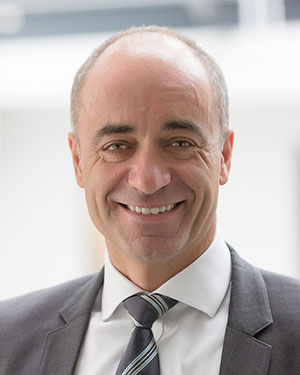
Volker Ziegler
Volker Ziegler, an IEEE Senior Member, received his Dipl.-Ing. (MSc) and Dr.-Ing. (PhD) degrees from the Department of Electrical Engineering, Universität (TH) Karlsruhe, Germany.
He currently exercises a leadership role in 6G research with Nokia Bell Labs. In his previous role as Head of 5G Leadership and Chief Architect of Nokia Mobile Networks, Volker played a key role in defining Nokia’s e2e 5G offering and positioning Nokia in 5G and associated innovation, technologies and architecture. Prior to this, Volker served in Head of Strategy roles in the company and as Head of the North East region. In his 10+ year career with Siemens, Volker has held business unit leadership, finance, sales, services and R&D global roles and senior positions. He worked as an Information Technology Specialist with the World Bank / IFC in the mid-90s. Volker started his career as a research scientist with German Aerospace Research / DLR.
14 September 2021 // Webinar on “The Role of AI, Communication and Transactive Energy Systems in Sustainability”
Description: Renewable energy resources are underutilized worldwide, regardless of geography or economy. This is partly due to the challenge of integrating a large number of small-scale, distributed renewable energy generators to the utility power grid; and partly due to the intermittency and cost of such resources. The current practice for installing small generators is to invest for capacity that only meets the average demand of the consumers with rigid contracts, simply because in general, there is no stake in surplus energy from prosumers. In this talk, we introduce novel AI-based tools that are developed for a peer-to-peer energy trading platform with two-way communication capability among microgrids and the utility grid. Such transactive energy systems offer more opportunities to make use of renewable energy more efficiently and strengthen sustainability.
View the Webinar Recording | View the Webinar Presentation
Speaker:
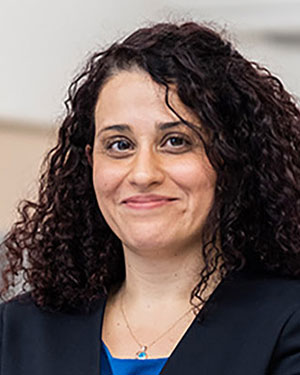
Melike Erol-Kantarci
Melike Erol-Kantarci is Canada Research Chair in AI-enabled Next-Generation Wireless Networks and Associate Professor at the School of Electrical Engineering and Computer Science at the University of Ottawa. She is the founding director of the Networked Systems and Communications Research (NETCORE) laboratory. She is a Faculty Affiliate at the Vector Institute, Toronto, and the Institute for Science, Society and Policy at University of Ottawa. She has over 150 peer-reviewed publications which have been cited over 5800 times and she has an h-index of 39. She has received numerous awards and recognitions. Recently, she received the 2020 Distinguished Service Award of the IEEE ComSoc Technical Committee on Green Communications and Computing and she was named as N2Women Stars in Computer Networking and Communications in 2019. Dr. Erol-Kantarci has delivered 50+ keynotes, tutorials and panels around the globe and has acted as the general chair and technical program chair for many international conferences and workshops. Her main research interests are AI-enabled wireless networks, 5G and 6G wireless communications, smart grid and Internet of things. She is an IEEE ComSoc Distinguished Lecturer, IEEE Senior member and ACM Senior Member.
1 June 2021 // Webinar on "SubClimate Change and Telecommunications"
Description: Technology improves lives, saves lives & enables sustainable living, but does it cost the planet? I will highlight some of the actions that are being taken to ensure this is not the case, and identify the open problems that we face.
View the Webinar Recording and Presentation
Speaker:

Louise Krug
Louise Krug is the technical lead for BT’s Applied Research Sustainability work. Her role is to define, develop and drive concepts through research and into the implementation teams for successful deployment. She has been at the forefront of developing BT’s major cross-platform energy model which helps the business understand how, why and where it uses electricity. This has been used to drive major network changes leading to energy use reductions. Her research benefits from a multidisciplinary approach, using physics, engineering, data science and human behaviours to identify solutions and drive change. Previous research topics have included 3G and fixed mobile convergence and the development of high power lasers for transatlantic communications systems. She enjoys the inspiration gained from working on collaborative research projects across industry and academia. She has published over 40 papers and book chapters.
4 May 2021 // Webinar on "Sustainability Within the Information and Communications Technology (ICT) Industry"
Description: In a rapidly growing information society, technology presents challenges and opportunities across sectors globally. The Global Enabling Sustainability Initiative (GeSI) facilitates real world solutions to current and emerging issues within the Information and Communications Technology (ICT) industry and the greater sustainability community. Driven by the bold ambition of its broad membership and empowered by the alignment of its vision with global partners, GeSI presents the Digital with Purpose Movement (DwP).
DwP is a Movement of leaders joining forces in a race to deliver against the Paris Agreement and Sustainable Development Goals by 2030. The most ambitious GeSI initiative yet, the Movement will catalyse collective action and the deployment of impactful digital technologies throughout the ICT sector.
View the Webinar Recording and Presentation
View the Videos shared during the Webinar: SMARTer 2030 | Innovators’ Network | DwP Film
Speaker:
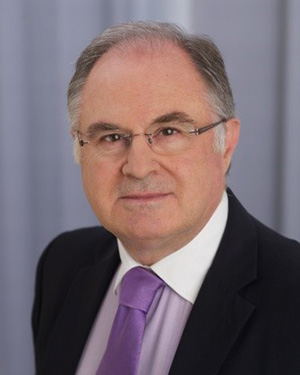
Luis Neves, CEO of Global Enabling Sustainability Initiative (GeSi)
Luis Neves is CEO of the Global Enabling Sustainability Initiative (GeSI) since 2017. Prior to that, from 2008-2017, Luis held the position of GeSI Chairman. Under Luis' leadership, GeSI has become a globally recognized “thought industry leader” organisation in the field of ICT- sustainability with strong focus on the enabling role and positive contribution of digital technologies to climate protection.
Prior to GeSI, Luis worked at Deutsche Telekom for over 15 years holding positions such as Head of Sustainable Development and Environment, VP of Corporate Responsibility and Chief Sustainability and Climate Protection Officer. Luis has also held positions and played relevant roles at European and international levels in organisations, such as the UN Global Compact Lead Group, Econsense -the German Sustainability Association, World Resources Forum Association and UNFCCC Momentum for Change Initiative.
Luis was born in Portugal and obtained a degree in History from the University of Lisbon.
Co-Chairs of the IEEE Sustainable ICT Initiative:
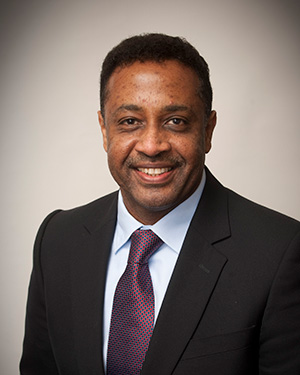
Jaafar Elmirghani, Professor at University of Leeds and Co-Chair of IEEE Sustainable ICT Initiative
Professor Jaafar Elmirghani is Fellow of IEEE, Fellow of the IET, Fellow of the Institute of Physics and is the Director of the Institute of Communication and Power Networks and Professor of Communication Networks and Systems within the School of Electronic and Electrical Engineering, University of Leeds, UK. He joined Leeds in 2007 having been full professor and chair in Optical Communications at the University of Wales Swansea 2000-2007.
He received the BSc in Electrical Engineering, First Class Honours from the University of Khartoum in 1989 and was awarded all 4 prizes in the department for academic distinction. He received the PhD in the synchronization of optical systems and optical receiver design from the University of Huddersfield UK in 1994 and the DSc in Communication Systems and Networks from University of Leeds, UK, in 2012. He co-authored Photonic Switching Technology: Systems and Networks, (Wiley) and has published over 550 papers.
He was Chairman of the IEEE UK and RI Communications Chapter and was Chairman of IEEE ComSoc Transmission Access and Optical Systems Committee and Chairman of IEEE ComSoc Signal Processing and Communication Electronics (SPCE) Committee. He was a member of IEEE ComSoc Technical Activities Council’ (TAC), is an editor of IEEE Communications Magazine and is and has been on the technical program committee of 41 IEEE ICC/GLOBECOM conferences between 1995 and 2021 including 21 times as Symposium Chair. He was founding Chair of the Advanced Signal Processing for Communication Symposium which started at IEEE GLOBECOM’99 and has continued since at every ICC and GLOBECOM. Prof. Elmirghani was also founding Chair of the first IEEE ICC/GLOBECOM optical symposium at GLOBECOM’00, the Future Photonic Network Technologies, Architectures and Protocols Symposium. He chaired this Symposium, which continues to date. He was the founding chair of the first Green Track at ICC/GLOBECOM at GLOBECOM 2011, and is Chair of the IEEE Sustainable ICT Initiative, a pan IEEE Societies Initiative responsible for Green ICT activities across IEEE, 2012-present. He has given over 90 invited and keynote talks over the past 15 years.
He received the IEEE Communications Society 2005 Hal Sobolaward for exemplary service to meetings and conferences, the IEEE Communications Society 2005 Chapter Achievement award, the University of Wales Swansea inaugural ‘Outstanding Research Achievement Award’, 2006, the IEEE Communications Society Signal Processing and Communication Electronics outstanding service award, 2009, the IEEE ComSoc Transmission Access and Optical Systems outstanding Service award 2015 in recognition of “Leadership and Contributions to the Area of Green Communications”, the GreenTouch 1000x award in 2015 for “pioneering research contributions to the field of energy efficiency in telecommunications", the IET 2016 Premium Award for best paper in IET Optoelectronics, shared the 2016 Edison Award in the collective disruption category with a team of 6 from GreenTouch for their joint work on the GreenMeter, the IEEE Communications Society Transmission, Access and Optical Systems technical committee 2020 Outstanding Technical Achievement Award for outstanding contributions to the “energy efficiency of optical communication systems and networks”. He was named among the top 2% of scientists in the world by citations in 2019 in Elsevier Scopus, Stanford University database which includes the top 2% of scientists in 22 scientific disciplines and 176 sub-domains. He was elected Fellow of IEEE for “Contributions to Energy-Efficient Communications,” 2021.
He is currently an Area Editor of IEEE Journal on Selected Areas in Communications series on Machine Learning for Communications, an editor of IEEE Journal of Lightwave Technology, IET Optoelectronics and Journal of Optical Communications, and was editor of IEEE Communications Surveys and Tutorials and IEEE Journal on Selected Areas in Communications series on Green Communications and Networking. He was Co-Chair of the GreenTouch Wired, Core and Access Networks Working Group, an adviser to the Commonwealth Scholarship Commission, member of the Royal Society International Joint Projects Panel and member of the Engineering and Physical Sciences Research Council (EPSRC) College.
He has been awarded in excess of £30 million in grants to date from EPSRC, the EU and industry and has held prestigious fellowships funded by the Royal Society and by BT. He was an IEEE ComSoc Distinguished Lecturer 2013-2016. He was PI of the £6m EPSRC Intelligent Energy Aware Networks (INTERNET) Programme Grant, 2010-2016 and is currently PI of the EPSRC £6.6m Terabit Bidirectional Multi-user Optical Wireless System (TOWS) for 6G LiFi, 2019-2024. He leads a number of research projects and has research interests in communication networks, wireless and optical communication systems.
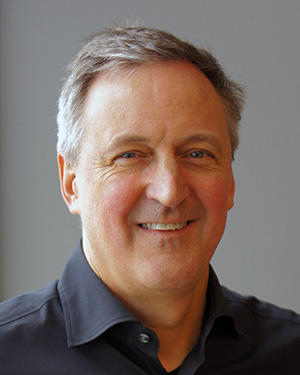
Charles Despins, Professor at Universite du Quebec and Co-Chair of IEEE Sustainable ICT Initiative
Charles Despins’ career has spanned, over more than 35 years, both the academic and industrial segments of the information technology and communications sector. In addition to having been a faculty member of INRS-Telecommunications (Université du Québec) in Montreal, he later held senior management positions in the private sector including senior director of technology development at Microcell Telecommunications as well as vice-president and chief technology officer of Bell Nordiq Group. He also worked as a consultant for wireless network deployments in India and China. After leaving his full-time academic position in 1996, he remained active in research as an adjunct professor at INRS.
From 2003 to 2016, he was also founding President & CEO of Prompt, a university-industry research consortium which is a now highly recognized collaborative research actor in Québec. He rejoined academia in 2016 and is currently professor of electrical engineering after serving as vice-president – research & partnerships and Dean of Research at École de Technologie Supérieure (ÉTS), Université du Québec.
He holds a bachelor’s degree in electrical engineering from McGill University in Montreal, as well as M.Sc. and Ph.D. degrees, also in electrical engineering, from Carleton University in Ottawa. He was the recipient of the (1993) Best Paper of the Year award in IEEE Transactions on Vehicular Technology. He was named in 2005 a Fellow of the Engineering Institute of Canada and was the recipient in 2006 of the Outstanding Engineer Award from IEEE Canada for (citation) "excellence in the electrical engineering profession in both academia and industry”.
He has been the co-Chair of the IEEE Sustainable ICT initiative since its inception and a strong advocate on this theme for more than a decade.

